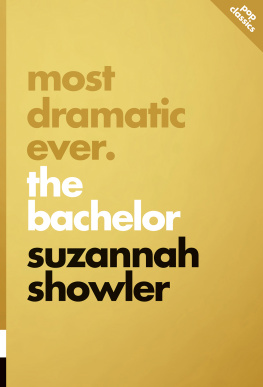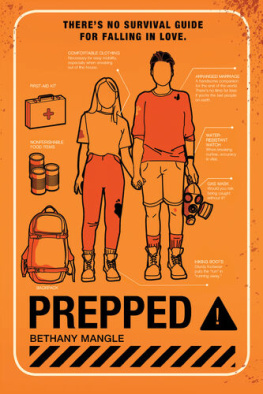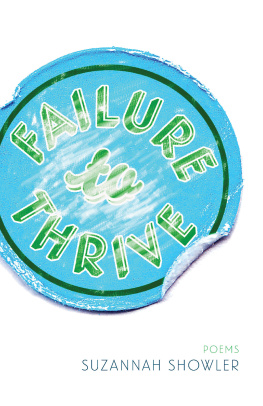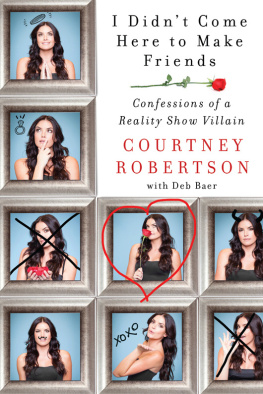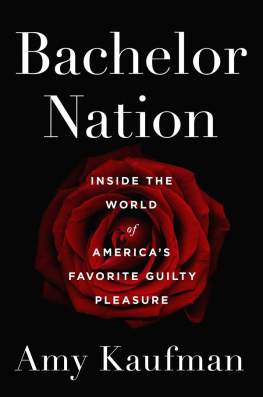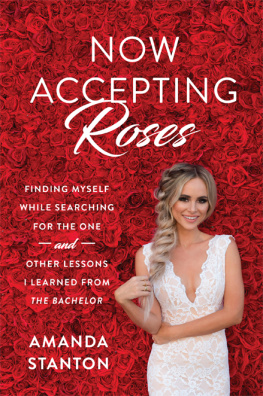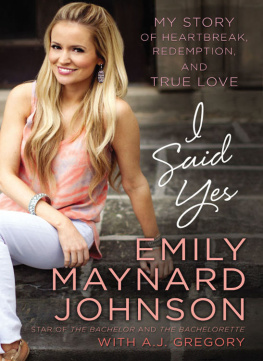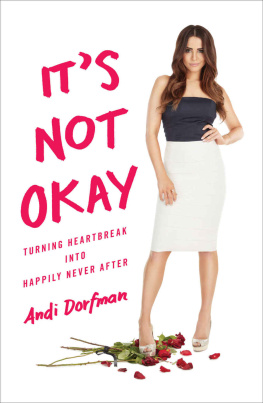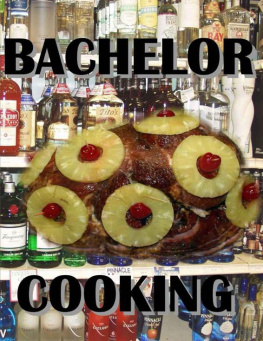Its a swimming pool at the edge of the world. The far lip of the pool juts over a vast coastal panorama as if the steep drop-off to the ocean happens here, maybe right under our feet. Everything is water and light and water: the up-close, unreal blue of the pool picked up in the ocean, which takes the color and runs with it, bolting towards the horizon at the speed of a shimmer, colliding with the preposterous, unbroken blue of the sky. Its impossible to say which part man-made or natural is the imitation. It all seems like one thing.
This is the first shot of the first episode of The Bachelor. Its brief, just a few moments, but the beauty it shows is willful, boggling, engineered for optical illusion. Even if youve never been to California, you know this is California. The way every element pool, ocean, sky flattens with an eager camera-readiness makes you think maybe people build mansions and pools in places like this not to look at the view, but to be inside it. And the mistake of thinking the ground drops out from under us maybe thats the idea. Maybe its kind of true. Like there are places where the whole point of beauty, of nature, is to condition us to get something wrong.
Its just a few seconds. The camera swings left, and standing on the pool deck theres a man in a summer suit that looks like millennium-era Gap khaki taking a crack at formalwear. Hi, he says, Im Chris Harrison. And no, Im not the Bachelor.
*
When The Bachelor debuted in 2002, it was hardly a latecomer to the reality TV party, but it also wasnt leading the vanguard. In summer 2000, when Survivor with its safe, silly contrivance overlaid with the dark exposure of bare life turned out to be an explosive ratings-gobbler, it appeared that something about the palate of 21st-century TV viewers had either exposed itself or been whetted. In the glut of turn-of-the-millennium reality TV that followed, The Bachelor was solidly in the middle: after Big Brother and Fear Factor, before Americas NextTop Model and TheSimple Life, in just about the same breath as American Idol.
By virtue of its subject (hetero dating), The Bachelor also has ancestral roots reaching back to the 1960s and 70s with The Dating Game: that game show classic where bachelors numbered one through three (sometimes gender-reversed) compete with ice-breaking trivia for a chance to take a prize woman out on the studios dime. The Dating Game ran for a decade in the mid-60s and then, like the matchmaking undead, was revived three times between the late 70s and late 90s. Without the seriality of The Bachelor, Dating was pure game show, suffering no fuss over reasons, right or wrong, to sign up as a contestant. A common gig for struggling actors, Dating Game archives are a real treasure trove of before-they-were-famous footage.
There are also Bachelor relations among its own reality cohort, kissing cousins (maybe more like drunk makeout cousins?) like Blind Date and Temptation Island. Blind Date, which ran from 1999 into the mid-aughts, set couples up on multi-part, multi-drink dates then glossed the footage often pretty dull on its face with cheeky cartoon thought bubbles. Temptation Island was a kind of false rumspringa, bringing four committed couples to a resort, splitting them up, and surrounding each with a cast of (tempting, hence the name) professional bods of the opposite sex. Temptation was sort of The Bachelors inverse an experiment in romance-busting rather than building but tapped the same fears and longings. In its own way, it held up monogamy as an aspirational, self-improving end.
Finally, the closest comp by virtue of its shared paternity is Bachelor executive producer Mike Fleisss first televised matrimonial extravaganza, Who Wants to Marry a Multi-Millionaire?Homo habilis to The Bachelors erectus. A single two-hour special aired in 2000, Millionaire was a classic, 50-state American beauty pageant with a shadowy sugar daddy (literally: he was only visible in silhouette) serving as both judge and winners crown (no scholarship program here). Twenty-two million people tuned in to watch Miss-turned-Mrs. Millionaire claim her prize of on-the-spot wedlock to the moneybags. Just as soon as the couple had honeymooned-slash-met, it was revealed that FOX had done poor vetting on their millionaire next door (as Fleiss had called him), who had a restraining order from an ex-fiance on the grounds of domestic violence. Hed also fudged his professional creds, his name, and quite possibly the barely plural millions for which hed been cast. Whoopsie-daisy! Better background checks next time.
Despite this unalloyed failure, Fleiss remained convinced that America was thirsty for reality TVmade marriage. (After all, 22 million had tuned in to watch his wayward liability pageant in the first place.) After striking out at a couple of other networks, Fleiss sold ABC on another show about dozens of women pursuing a single mans hand. This time the pitch was less beauty pageant and more true love on crack: the usual beats, from meet-cute to matrimony, cranked up by the presence of rivals and the fantasy-making efforts of TV production. A competitive fairy tale. The Bachelor was signed for six one-hour episodes and given an eight-week, shoestring shoot in which to make Mike Fleisss dreams come true. It was, for Fleiss, a second chance at (producing) love.
Unscripted dating shows that came before The Bachelor generated the standard reality TV goodies: embarrassing moments, interpersonal drama, the ups and downs of competition. But they had a common failing: prodding at schadenfreude under the auspices of dating made dating look bad. Though these shows were allegedly about romance, none was actually romantic.
So, yeah, uh, The Bachelor doesnt really have that problem. A many-candle-lined, rose-petal-strewn, sunset-lit journey to find The One, the Bachelors romance is pitched to take your breath away, suck oxygen, smother. The show has never been coy about its ambitions. In the very first episode, Chris Harrison tells us: This is not an ordinary relationship show the stakes are considerably higher here. This is about something real. Something permanent. You know, the whole till death do you part thing?
It may have been joining the spate of crass human spectacles hurled up in TV to ring in the 21st century, but

